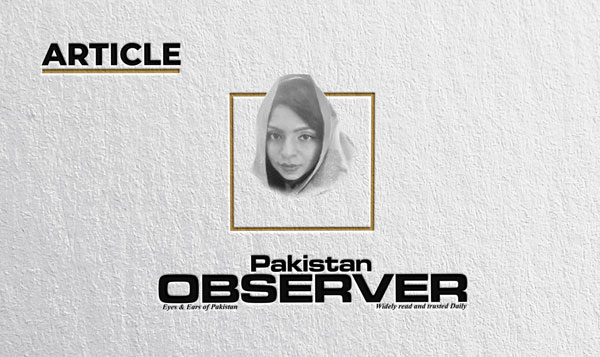Noureen Akhtar
Kashmir is an international flash point with the potential to lead up to a nuclear flare-up in South Asia and after Feb 2019 incidents there is a universal consensus on this assertion. Earlier, in 1999, Kargil War was also fought over Kashmir. For Pakistan, Kashmir is an international issue between two states which must be resolved as per UNSC resolutions and the will of the Kashmiri people. For India, it is an internal issue with low-level unrest. India uses the 1972’s Shimla Agreement between the two countries to make it a bilateral issue.
Pakistan has been making efforts to highlight Kashmir as a potential humanitarian crisis due to the deployment of nuclear arsenal from both sides of the LoC and growing Indian atrocities in the valley. On the other hand, India has descended into politico-religious fanaticism under Hindutva-inspired BJP/RSS that unilaterally changed the special status of Kashmir in the Indian constitution by removing Articles 370 and 35-A.
India has adopted a deceptive diplomatic position on the matter. While engaging Pakistan bilaterally, India wants to discuss Kashmir as an internal issue; both sides have worked on multiple options to settle it in the past as well. Ironically, at the global level, India declares Kashmir an internal matter and accuses Pakistan of meddling whenever Islamabad tries to raise the issue on any international forum. Internationally, India accuses Pakistan of spreading terrorism in Kashmir. This ploy of India is an attempt to establish globally that Kashmir is, in fact, an internal problem of India that must not be discussed at global forums except in the context of Pakistan’s role in terrorism there.
Obviously, for Pakistan this is not affordable as this disposition of Kashmir is not only an attempt to change the nature of the conflict but also makes Pakistan look like an oppressor and sponsor of terrorism. Furthermore, this stance of India also helps it to conceal all brutalities Indian armed forces are committing in the region. Stranded Kashmiri masses have been braving Indian atrocities on daily basis for the last 75 years. Against the backdrop of all these developments, it’s obvious that India does not want to settle the issue bilaterally. The world must assess all possible future scenarios about Kashmir in contexts of human rights, peace, and security and it being a nuclear flash point. Islamabad is already engaging the world community in this regard.
Concerning this, the Chairman of the Kashmir Council, Mr. Ali Raza Khan, wrote a letter to the President of the European Commission in Brussels, H.E Ursula von der Leyen. EC President was informed about Indian atrocities and brutalities against unarmed Kashmiris who after the removal of Articles 370 and 35-A are now facing a situation where they might turn into a minority in the valley.
Indian authorities, under the protection of its special forces, are demolishing the houses of native residents in large numbers. In Feb 2023 the homes and properties of residents in at least four districts of Srinagar, Budgam, Anantnag, and Baramulla were razed to the ground forcing the residents to seek shelters with relatives. India has taken out a page from the Israeli playbook and is busy adopting similar tactics. Unfortunately, even though international human rights watchdogs like Amnesty International notice, India continues these atrocities with complete impunity just like Israel is doing against Palestinians. In its latest report, Amnesty has pointed out, numerous demolitions taking place in Jammu and Kashmir, India’s only Muslim-majority region.
There is a consensus among experts that harassing and dismantling properties of local Kashmiris by Indian authori-ties, in the name of “New Colonial Land Laws”, is just paving the way for illegal settlements to alter the demography of Kashmir to turn entire India into a “pure Hindu State”. To meet these goals the Indian government has also made changes to domicile law to facilitate new settlements in the occupied territory. After new laws related to residence in India, Muslims all over the country have become isolated communities. What India is not realizing is that this community is not a smaller faction of Indian society and the RSS/BJP policies are perplexing for many analysts as these policies are tearing apart the Indian social fabric where diversity and secularism were considered sacred. India earned lots of diplomatic goodwill by presenting its secular face to the world through rightwing Hindutva always had its presence at every level.
It’s alarming that’s why the European Union’s leaders, who see themselves as champions of human rights, have turned a blind eye to despicable public policies being made in India regarding minorities including Christians. It must be investigated by Pakistani FO why despite so many incidents of HR violations in Kashmir, the world is not making a hue and cry against India as it makes over similar atrocities elsewhere. Islamabad needs to bring some innovation in its Kashmir diplomacy. Pakistan must focus on a regional approach to Kashmir to engage the world. Instead of reaching out EU, UN, and US as individual states, it would be more effective to engage them in a multilateral way so that the world can understand that Kashmir is not a mere territorial dispute between Pakistan and India, instead, it’s a much larger, complex and urgent issue which can turn into a regional crisis.
Apart from diplomacy, Pakistan needs a strong media policy towards Indian atrocities in illegally occupied Jammu and Kashmir. Diplomatic efforts must include media diplomacy as an integral part. Only a long-term cohesive policy and clearly defined action plan can ensure that Pakistan internationalizes the Kashmir issue as a potential harbinger of nuclear winter in South Asia and beyond.
*Author is Ph.D. Scholar (SPIR-QAU) and has worked on various public policy issues as Policy Consultant in National Security Division (NSD), Prime Minister Office (PMO). Currently, she is working at Islamabad Policy Research Institution (IPRI) as Policy Consultant. Her work has been published in local and International publica-tions. Twitter: at NoureenAkhtar16










